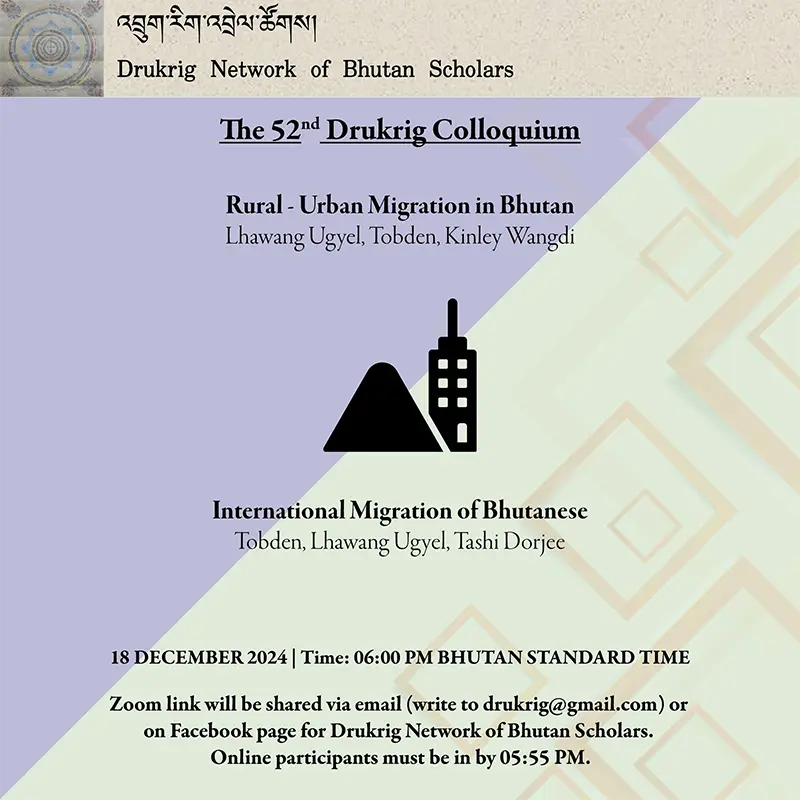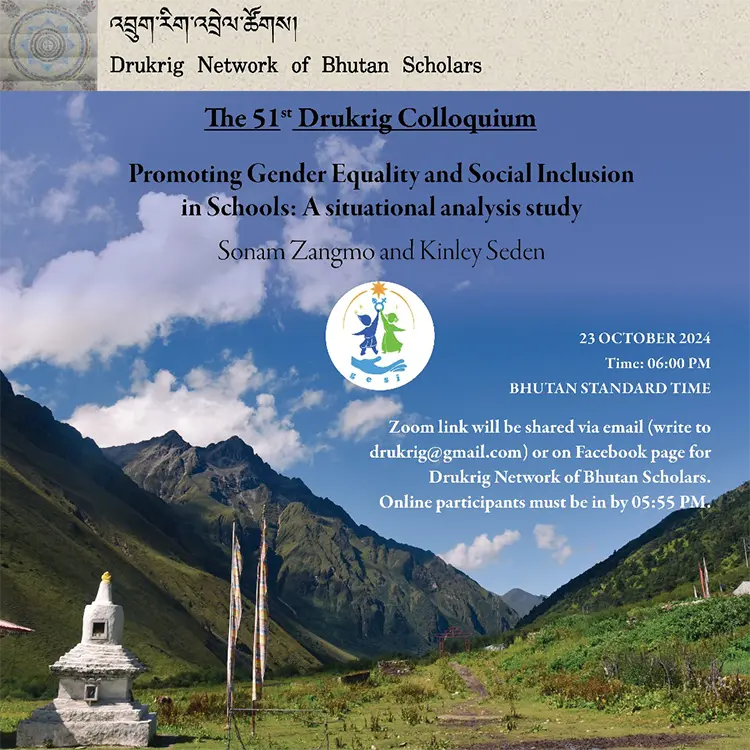Gungtong - What does it mean and How much do we know?
This session delves into the concept of "Gungtong," a term that holds deep cultural and historical significance in Bhutanese society. It explores the meaning of Gungtong, which is often associated with the practice of abandoning or leaving behind settlements or regions due to various factors, such as environmental challenges, resource depletion, or spiritual beliefs. The session examines the historical context of Gungtong, where entire communities once left their homes, and how this practice was tied to Bhutanese concepts of isolation, spirituality, and community life.
The discussion also addresses how much is understood about Gungtong, with a focus on the gaps in knowledge regarding its true origins, its prevalence across Bhutan, and the reasons behind the abandonment of certain areas. It raises questions about the ecological, social, and cultural impacts of Gungtong and how the practice has been interpreted over time. By revisiting this tradition, the session invites reflection on Bhutan’s historical relationship with its land and people, offering insights into the intersections of culture, environment, and migration in Bhutanese history.



